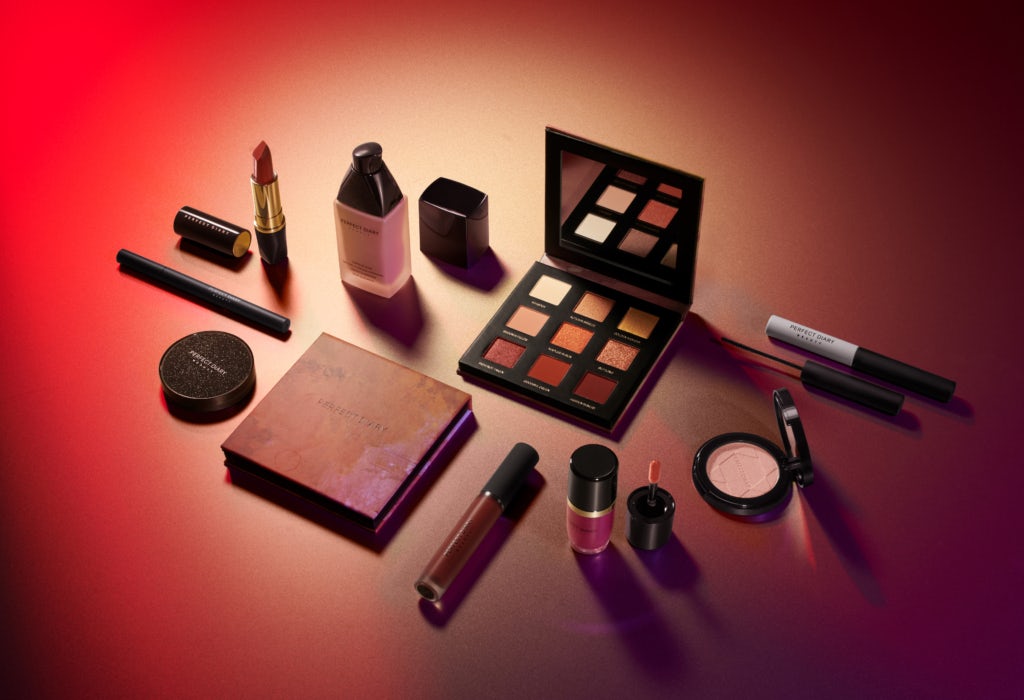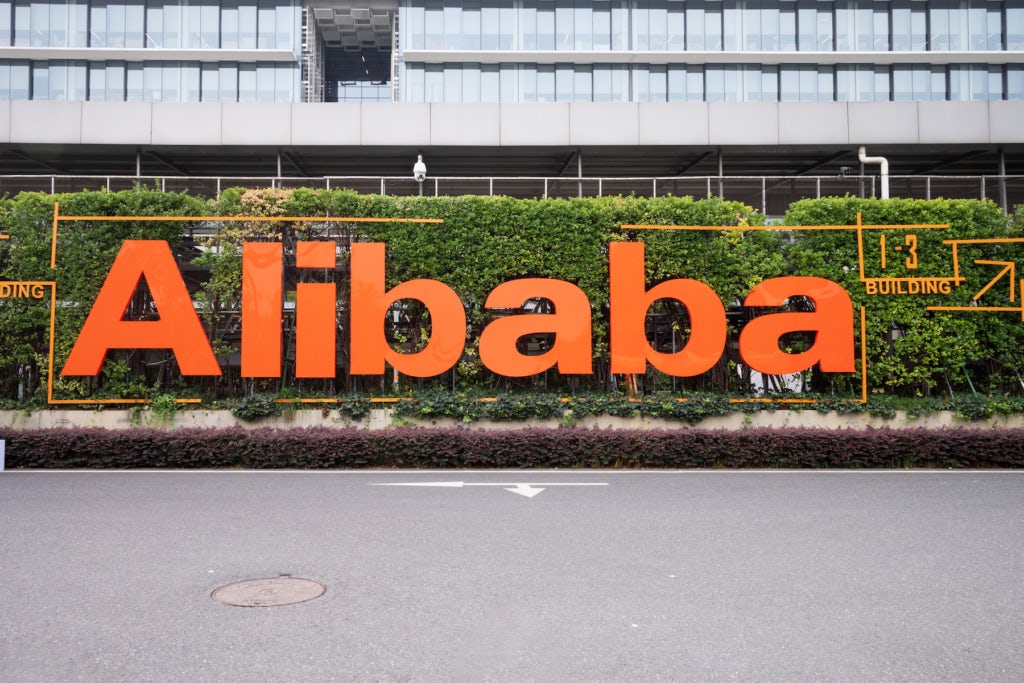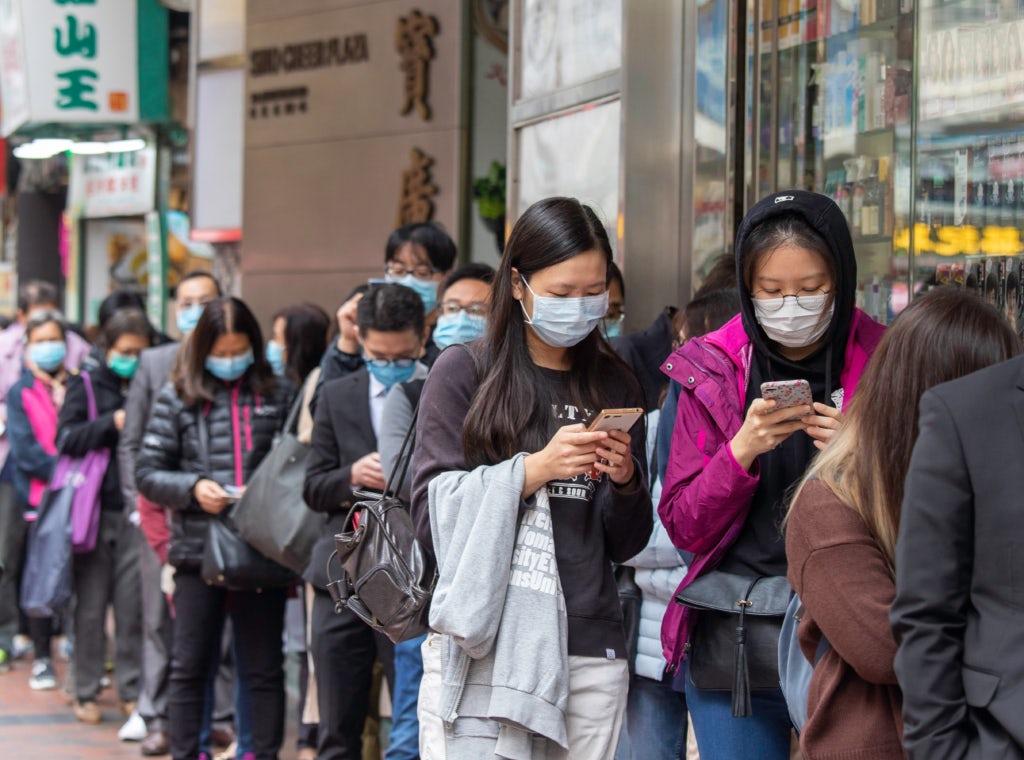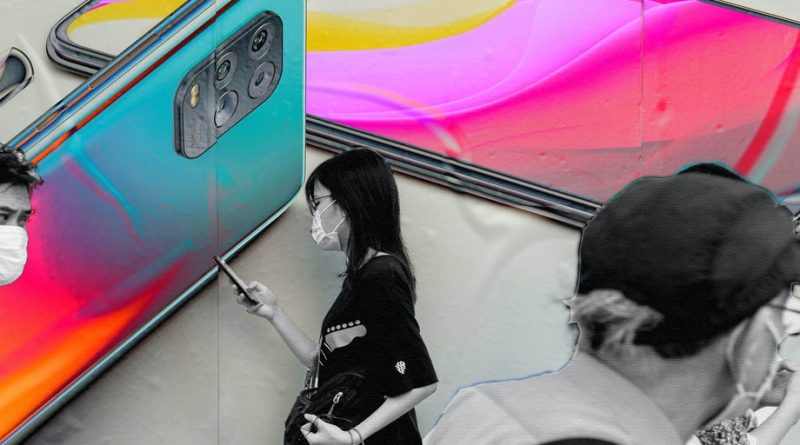China’s Latest Marketing Buzzword Actually Matters. Here’s How to Use It. | BoF Professional, China Decoded
LONDON, United Kingdom — The warp speed at which digital trends evolve in mainland China can make it hard to differentiate between need-to-know marketing strategies and flash-in-the-pan trends. With “private traffic,” however, all signs indicate the former.
“It is a buzzword, but there’s much more depth to that,” said Patrice Nordey, managing partner at digital agency Fabernovel.
Private traffic means marketing to consumers through direct channels, like brand-operated and moderated chat groups on messaging apps such as WeChat and QQ. This stands in contrast with public traffic, which takes the form of official social media accounts on WeChat, Weibo and Xiaohongshu, or flagship e-commerce stores on platforms like Tmall.
While companies in the West have also begun experimenting with texts and direct messaging, China’s brands have used the medium to take the content-commerce connection to a whole new level.
There are successful local players using carefully crafted fictional brand avatars to introduce exclusive sales, receive priceless feedback and encourage active discussions to promote loyalty. The scale of private traffic activity can be impressive too, with some Chinese brands tapping chat group operators to engage with millions of followers across hundreds of separate, well-segmented smaller groups of customers.

China’s 10b Internet native brand Perfect Diary. Source: Courtesy
Private traffic strategies have come a long way in a short period of time. A few years ago, influencers (known as Key Opinion Leaders in China) like Becky Li and Zhang Dayi spearheaded the approach to interact with their fans in a more personal (yet sales-driving) manner. Chinese fashion and beauty brands then jumped on the bandwagon and were rewarded with high conversions and sales — a result of the “sticky” and highly engaged environment that a well-run channel can foster.
But that’s not the only thing continuing to attract brands to operate in this way. Nordey noted that a costly overreliance on e-commerce marketplaces like Tmall and JD.com created demand for a channel, independent of third-party retailers, which can be used to collect valuable data and feedback. “Companies are looking for a solution because they need a plan B,” he explained.
This is vital for brands in China, said Lauren Hallanan, the head of marketing at WeChat management firm Chatly, who calls private traffic the “most ‘owned’ form of shared media.” Unlike markets such as the US and Europe, Chinese internet users don’t frequent brand.com sites or use email accounts for non-work purposes.
“You have control over what people are seeing and a direct way to contact them. It’s that one to one communication between the brand and the consumer; it’s a lot more personal,” said Hallanan, who added that though some global brands are interested in the tactic, many have yet to make the plunge out of concern regarding execution.
So far, the strategy has been spearheaded by homegrown brands — most notably hit C-beauty powerhouse Perfect Diary, which reaches over one million users through its chat groups. But the move could be just as impactful for global businesses looking to get ahead in China’s cutthroat e-commerce market, which last year hit $1.935 trillion in sales by eMarketer’s estimates — over three times that of the US. Here’s what brands need to know before mapping out their own private traffic game plan.
Think Outside the Chat Box
Private traffic provides brands with an invaluable opportunity to foster loyalty among their community and collect vast amounts of data and feedback while they’re at it.
Hallanan noted that Perfect Diary’s groups — filled with user generated content on the products people are buying, alongside questions about products and usage — were used by parent company Yatsen Global to develop its recently launched sister brand, Abby’s Choice (Abby, also known as Xiao Wanzi, is also the fictional avatar used by Perfect Diary to moderate its chat groups.)
“They started sharing products with loyal members [around January], before officially launching the brand in June… they were testing the products and refining the product line based on feedback,” she said.
Brands should experiment with new formats tailored to their community’s needs.
Companies need to get creative to produce unique and entertaining forums. “It’s important for brands to really think through the kind of value they want to bring through the group,” said Nordey.
Sales-focused content should form part of brands’ strategies, but not dominate, added Hallanan. Sandwiching marketing content with educational or social dialogue keeps users engaged: beauty brands can segment their groups by skin concern or invite KOLs and medical experts to take over their channels and explain the benefits of ingredients.
Beauty brands form the bulk of businesses currently operating private traffic groups, but fashion brands could benefit, too. Nordey added that luxury players may opt for a customer service approach, for users to direct queries concerning repairs, deliveries, customisation and locating out-of-stock items they’re after. Private traffic channels could also become exclusive invite-only chat groups for VIPs.
Brands should experiment with new formats tailored to their community’s needs. Activewear maker Maia Active, Hallanan noted, anticipated that its audience would be bored of staying and working out at home during lockdown. It published meal plans and hosted lifestyle-related live discussions and free exercise classes, alongside lucky draws and sales events. “They almost planned your entire day,” said Hallanan, adding that the brand’s year-on-year sales increased as a result.
Forge Inter-Channel Connectivity
Both public and private accounts are needed for brands to operate a well-rounded presence within China’s digital ecosystem. Private traffic relies on users to scan QR codes on WeChat or click through a brand’s WeChat mini program after buying a product to activate an invitation to a chat group.
This is unlike the US, where platforms are structurally distinct and there isn’t a single, ubiquitous messaging app that brands can utilise and extract user data from. It also explains why private traffic is unlikely to succeed at the same scale in the West, for now: Mark Zuckerberg has voiced his plans to unify WhatsApp, Instagram and Facebook into an interconnected, WeChat-like “super app” but this is still underway.
To start, brands will need a mini program store where users can purchase the products of interest, a WeChat Work account and a tech backend specifically for private traffic, said Nordey.
To make the most out of private traffic data, brands should connect the account (alongside their official accounts and mini programs) to their Customer Relationship Management (CRM) platform through WeChat Work and track users’ data across social and commercial touchpoints. “[For example], you’ll know the consumer in this private traffic group has also bought three eyeshadow palettes from you in the past month,” said Hallanan.
But within the public-private connection, businesses will also need to put in work so consumers bite. “[Success] depends on consumers’ willingness to join private traffic pools and interact with brands,” said Sofya Bakta, marketing strategy analyst at Daxue Consulting.
Private traffic channels won’t bear fruit unless a business doesn’t already have a strong brand identity.
In other words, private traffic channels won’t bear fruit unless a business doesn’t already have a strong brand identity and community-forward strategy in place. “A brand has to [build] honest relationships with the consumer… having previously earned a decent reputation,” added Bakta.
No Such Thing as Free Conversions
Private traffic marketing started in China, in part, as an alternative to the skyrocketing customer acquisition costs and commissions required to advertise on and maintain a presence on social media and third party e-commerce sites. “A lot of brands are having to reflect on how to engage with current consumers, how to retain consumers and make them more loyal,” said Hallanan.
Brands now have a generally cheaper route, which affords them a closer relationship with their community and, if well-leveraged, a wealth of data. But many often underestimate the costs that can quickly add up as a private traffic strategy is scaled up, and should plan ahead before making the plunge.
While smaller businesses could get by with one or two groups of hundreds of users, channels can quickly grow and necessitate high labour costs (groups typically have more than one manager or operator). Nordey noted that even smaller brands will need a tech infrastructure allowing them to invite targeted people to the right groups and a team to create a consistent stream off content and multiple managers per group (as well as chat bots, for out-of-hours queries).
Moreover, WeChat’s personal accounts are capped at 5,000 followers, so businesses could end up running their groups on multiple accounts and devices. Influencer agency Parklu estimated that a brand managing 1,000,000 followers would require 2,000 separate WeChat groups and 200 WeChat accounts.
Companies shouldn’t underestimate the amount of content they’ll need to put out to keep consumers engaged or how competitive it has become. “I’ll wake up to hundreds of messages,” said Hallanan of the top private traffic groups operated by brands and KOLs. “Make sure there’s a lot of educational-type content you can do to really engage people all the time.”
Furthermore, operators need to be trained and private traffic activity tends to peak outside of business hours so that adds another complication to a strategy’s roll-out. Third-party agencies are also beginning to provide packaged private traffic operations for brands that don’t want to manage their accounts in-house. These services, too, can and will add up to a significant expense.
Find the Right Voice
For luxury brands in particular, training and delegating responsibilities to group managers will require training and trust.
Operators will need to combine the extensive product knowledge of sales associates with a personable, social media-savvy tone. It’s up to the brand in question to decide on a voice to use throughout their groups, and ensure that it is consistent with their broader social media presence while encouraging interaction.
For luxury houses — for which adopting a bubbly avatar like Perfect Diary’s as their private traffic persona would be evidently off-brand — hitting the right balance is crucial. This also extends to KOLs, celebrities and experts that brands may invite to host or take over chat groups. Moreover, an educational slant may work for some sectors or product categories, but there isn’t a one-size-fits all strategy.
“This is a group with 500 people and there are comments being shared, [so] you’re putting your trust in the group managers to represent the brand correctly,” said Hallanan. “I haven’t seen any issues arise [yet] but especially for luxury brands, that could be a concern.”
时尚与美容
FASHION & BEAUTY

The Fosun Foundation, Shanghai, China | Source: Shutterstock
Fosun Subsidiary Adds Italian Jeweller to Portfolio
Conglomerate Fosun International — whose fashion business counts Lanvin and Wolford among its brands — has signed a joint venture with Italian group Damiani through its jewellery arm Yuyuan. The deal, which sees Yuyuan nab a 55 percent stake in the group, makes it the exclusive regional distributor for both Damiani and its affordable sister line Salvini. The news could signal that Chinese groups’ M&A appetites have resumed after a lull in activity from the likes of Fosun and SMCP owner Shandong Ruyi, which shelled out $4 billion in overseas acquisitions between 2015 and 2018. But Ruyi’s recent debt troubles — the group’s request to extend interest payment on a 1 billion yuan bond again by another six months was secured last month — serve as a cautionary tale. Damiani did not respond to BoF’s request for comment. (East Money)
Harper’s Bazaar China’s Social Media Faux Pas
In a Weibo post describing digital health systems designed to fight Covid-19, the magazine’s Chinese edition used the term liangmin zheng (“good-citizen certificate”), a phrase that referred to identification papers given to Chinese citizens living in areas controlled by Japanese forces during World War II. The post was made on the anniversary of the event that catalysed the Sino Japanese War, no less, and backlash unsurprisingly ensued. Despite a swift apology, the hashtag “Harper’s Bazaar apologises” received 570 million views on Weibo within hours. (Jing Daily)
科技与创新
TECH & INNOVATION

Alibaba Group location in Hangzhou, Zhejiang | Source: Shutterstock
Alibaba’s Five Year Goals: A Billion Shoppers in China, Two Billion Worldwide
The retail behemoth released its annual results Friday: net income for its fiscal year ending March 31 climbed 75 percent from a year earlier to 140 billion yuan and revenues rose 35 percent. Despite the global pandemic, the group has achieved its 2015 goal, of recording over $1 trillion in gross merchandise volume. But Alibaba has already set its eyes on new targets. Chairman and Chief Executive Daniel Zhang wrote to shareholders that the company would aim to serve over a billion consumers in China and facilitate more than 10 trillion yuan ($1.4 trillion) in consumption through its platforms by 2025. Globally, the goal is to serve two billion customers, create 100 million jobs and help 10 million small businesses on its platform become profitable through infrastructure support by 2036. (South China Morning Post)
Bilibili Reportedly Eyes Second Listing
The Tencent and Alibaba-backed post-’90s-beloved video platform is eyeing a second listing in Hong Kong, according to sources with knowledge of the matter. Amid escalating tensions between Beijing and Washington that are making it harder for Chinese companies to list on Nasdaq’s bourse, Bilibili isn’t alone. Alibaba raised $12.9 billion in its secondary listing last November, while rival JD.com raised $3.9 billion and games developer NetEase raised $3.1 billion more recently. (Reuters)
消费与零售
CONSUMER & RETAIL

A ‘tea art’ beauty tutorial by Bilibili user Xiaolanzi | Source: 小蓝子
C-Beauty’s Latest Trend
A new makeup style, “tea art” is making waves on Chinese social media by turning the phrase lv cha mei ( “green tea b****,” an insult describing a seemingly sweet or innocent woman that has a manipulative personality) on its head. KOLs and netizens are creating light pink-toned glowy makeup looks — sought after for being both sweet and sultry — and the term is trending across social media platforms Weibo, Douyin and Xiaohongshu. Its rise suggests that younger social media users are increasingly challenging traditional social tropes. (Jing Daily)
Major Department Store Plots Wuhan Expansion
Beijing-based department store group Wangfujing will invest 26 billion yuan into Wuhan, where it will build shopping malls, outlets, duty free stores, hotels and shopping streets. The plans outline the group’s largest investment project outside its native city and are slated to position Wuhan as the country’s new shopping haven, which could further accelerate recovery efforts in what was the Chinese epicentre of Covid-19. But Wangfujing isn’t the only retail giant with its sights set on the city: both Hang Lung and K11 are set to unveil new spaces in Wuhan this year. (Jiemian)
政治,经济与社会
POLITICS, ECONOMY, SOCIETY

People queue up to buy face masks in Hong Kong | Source: Shutterstock
Hong Kong’s Woes Continue As Cases Surge
This week, the city’s government introduced its toughest social distancing measures yet to fight a growing number of Covid-19 infections. According to local authorities, Hong Kong reported 52 new cases of coronavirus on Monday, including 41 that were locally transmitted. Though restaurants and stores can still operate during limited hours, the measures could further dampen the city’s already sluggish retail recovery. Meanwhile in the wake of Beijing’s new national security law, China has deemed the primaries held by Hong Kong’s pro-democratic parties last weekend — which drew an estimated 600,000 voters — “illegal.”
UK Bans Huawei From 5G Network
The Chinese technology company, which has long been embroiled in the US-China trade war, won’t be able to sell its equipment to British mobile providers after 2020. Moreover, providers must also remove all Huawei’s 5G technology from their networks by 2027. The move sees a U-turn on the British government’s previous decision to allow Huawei to supply 35 percent of the UK’s 5G equipment and follows further US sanctions made against the firm in May. Some ministers have criticised the decision, which may cause a two to three year delay in rolling out 5G in addition to up to £2 billion in costs (that may be passed down to consumers). In another slight to Beijing, the UK is offering roughly three million Hong Kong residents the opportunity to live and work in the country — similar moves have been made by the US and Taiwan. (The Guardian)
China Decoded wants to hear from you. Send tips, suggestions, complaints and compliments to our Shanghai-based Asia Correspondent [email protected].





